"Massandra." Occupation and Liberation
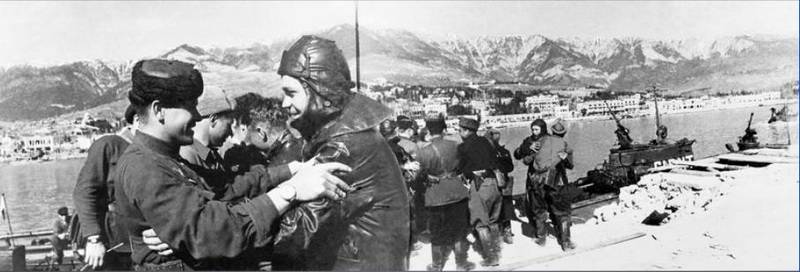
December 5 1941 year of the Jews settled in these barracks. The unfortunate will spend a few days in this place before the tragic end. By December 18, all Yalta Jews of the Massandra ghetto will be shot. By this time, the Gestapo had already entrenched themselves in the former mansion of furniture manufacturer Fedor Fedorovich Melzer. A solid building with deep cellars will become a torture lock and death chamber for many Yalta residents.
In the midst of bloody terror, the Nazis demanded wine
Despite the rampant terror, already on the day of the occupation, the Nazis arrived at plant "Massandra". The senior officer ordered all workers to urgently gather at the entrance. The Nazi commander announced to the assembled people, who were intimidated to death, that from now on they were obliged to work under his leadership until the appointment of a civilian German administrator, and those who violated the work schedule and people convicted of theft would be immediately shot.
After these words, the German immediately put out of action one of the workers, one Mustafa Abdarmanov. To his misfortune, Mustafa took two bottles of wine distributed before the evacuation of the collection fund. The Hitlerite took out a pistol and took the worker to the corner of the factory club, but no shot followed. The officer stated that he had decided to postpone the execution of the sentence for the first time.
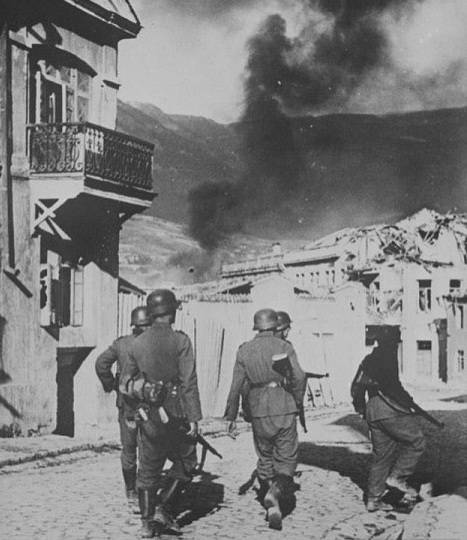
Soon the German officer was replaced by a formally civilian administrator - Austrian winemaker Hegel. Despite the “civilian” status of the administrator, Hegel adhered to the same Nazi-Gestapo methods at the plant: non-appearance at work — death, sabotage — death, lateness or improper performance of duties — death or sending to a concentration camp. It was thanks to these bloodthirsty measures that Hegel even managed to release two batches of wines - the season of 42 and 43.
It is worth noting that, despite the boundless national conceit of the Germans of that time and the European pride of the eternal "civilizers", Hegel arrived in Massandra with surprise found that he, a European winemaker, had nothing to modernize, improve or change. The technological process was ideal and without his European experience, so the German administrator did not make any adjustments, and had only the function of the overseer. True, it is worth noting that Hegel did not transfer the entire experience of the Yalta Gestapo to Massandra - the Nazis really wanted to be guilty.
And again, the Nazis were impatient to demonstrate to all the kneeling Europe how new lands would work for the Reich. Naturally, refined Massandra wine should have become such an illustrative example. Despite draconian policies towards the local population, Crimeans did not want to work for a “new Europe” at all. Therefore, the grapes at the plant handed over extremely reluctantly. Soon the Germans even had to set procurement prices, which were higher than the rates under the Soviet regime. But it helped a little. As a result, in 1943, as they say, "under fear", the local population was obliged to hand over the entire grape harvest to the Germans, which led to an interesting effect. Many vineyards were deliberately abandoned to avoid the fate of the raw materials appendage of the Nazis.
The liberation of Yalta and Massandra
On the morning of April 8, after artillery preparation, the troops of the 4-th Ukrainian Front in the Armyansk region in the north of the Crimean Peninsula launched an offensive, and the fighting on the Perekop isthmus, where the Germans had organized defense, soon began. And on the night of 10 on April 11, the Maritime Army troops launched an offensive from the east of Crimea in the Kerch area. By six o'clock in the morning, the future hero city of Kerch was completely liberated from the invaders, and the offensive continued.
Day by day, our troops liberated one city after another. By April 16, the liberators approached Yalta. It should be noted that in April, the Crimean partisans opened a real hunt for policemen, and the Germans plans were thwarted by numerous partisan sabotage operations, which eventually turned into real fighting even before the arrival of the army. All this has outraged the invaders, who are not capable of either controlling the territory or repulse the partisans and the advancing Soviet troops. Therefore, civilians from the beginning of April and up to the liberation of Yalta were afraid to appear on the street, so as not to become an accidental victim of the obsolete Nazi.
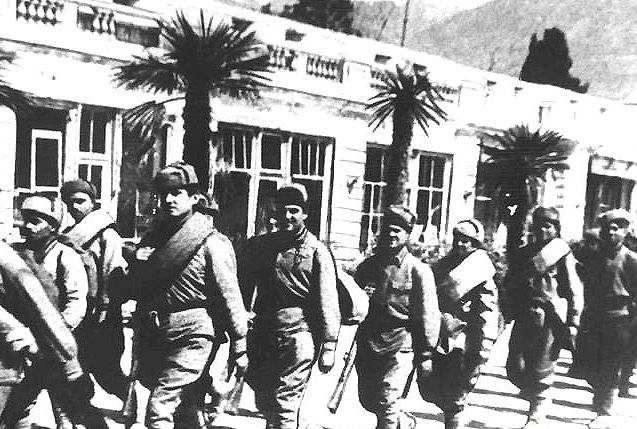
Thus, the Germans fled from Yalta mainly under the pressure of the partisans, while the Yalta people still did not believe in the long-awaited liberation. Soviet fighters of the Maritime Army entered the "empty" city. From the side of Ai-Petri, which is north-west of Yalta, the first battalion of the 777 regiment of the 277 th Temryuk rifle division entered the city. Fighters of the 383 Division, 2 Guards Taman Rifle Division, 339 Rifle Division in cooperation with the partisans of the 7 Brigade of the Southern Union of the Crimean Partisans entered the town of Yalta from the village of Nikita in Yalta. The latter should be mentioned separately, because they were the ones who saved many of the infrastructural facilities of Yalta and the pearl of these places - Massandra.
Partisans who saved Massandra
With all modern tales of civilization, the retreating Germans planned to liquidate all possible infrastructure of Yalta, that is, objects representing cultural historical and industrial value. Even the famous Livadia Palace and Massandra wine cellars were subject to demolition according to the Nazi plan. The workers of Massandra, realizing the Germans' intentions, closed the strong doors of the wine cellars and other objects of the plant some time before the arrival of partisan detachments and regular army forces and disappeared, hoping that the Nazis simply did not have enough time to open the cellars and mine buildings.
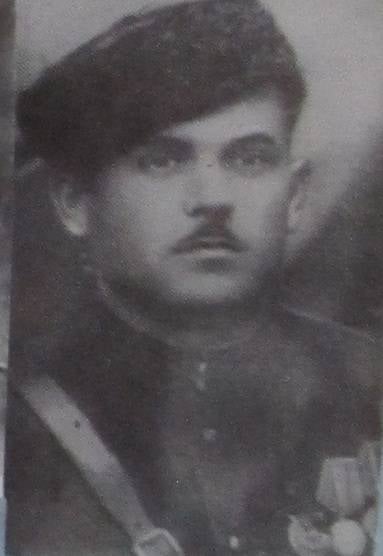
But a central role in saving Massandra was played by Leonid Vikhman and his partisans of the battle group of the 7 squad. Leonid was born in June 1919 of the year in the Belarusian Gomel in a Jewish family, but the future hero was already finishing school in Dzhankoy. In the ranks of the Red Army, Leonid was drafted in Moscow, judging by the published award documents, and in 1941, Wikhman graduated from the Caspian Higher Naval School.
In the same long-suffering 1941, the newly-minted lieutenant was a member of the bloody defense of Sevastopol as part of a marine brigade. After the fall of the city, Leonid managed to break through into the forest and join the ranks of the 3 of the partisan region under the command of Georgy Seversky. In total, there were five such areas as of October 1941.
After many battles and successful sabotage, Leonid Vikhman was appreciated, and at the end of October 1942 was already appointed commander of a large partisan detachment. He was known as a great connoisseur of the maneuver. He actively used the distracting technique to lure the enemy. For success in battles 24 October 42-th Leonid was awarded the Order of the Red Banner.
Thus, by the time of the liberation of Yalta, Leonid Vikhman was already a very experienced commander who knew the terrain perfectly. At dawn of 15 on April 1944 of the year, the 7 Brigade of the Southern Connection of the partisans of the Crimea under the command of Vikhman launched a real attack on the remaining Nazi units in Yalta. One of the tasks that had to be addressed during the battle was the rescue of important objects in the region.
Hastily retreating German troops were unable to undermine the objects planned for the liquidation, so in the last days of the occupation, already in an atmosphere of chaos, the Nazi command sent several detachments of demolition men. Some of them were to blow up the Livadia Palace, another part was assigned a port as a target, and still others were obliged to undermine the objects of Massandra. 7-I brigade Vihman was able to quickly cut off these German troops from these goals and destroy. The famous Massandra cellars were saved for future generations.
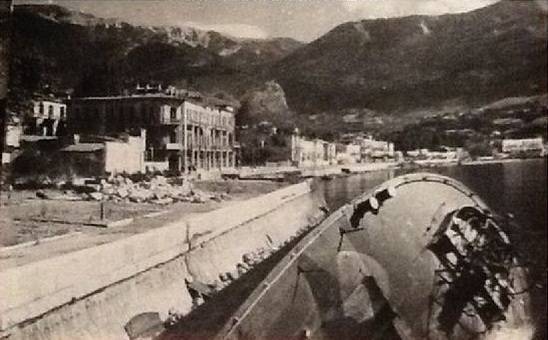
Of course, Massandra very seriously suffered from shelling and bombing, but still survived. 16 April 1944 of the year in Yalta, the fighters of the Maritime Army met with the first liberators of the city - the partisans of the Crimea. The city slowly departed from the Nazi nightmare, only after the cheers of the local partisans and soldiers cheered people slowly began to appear on the streets.
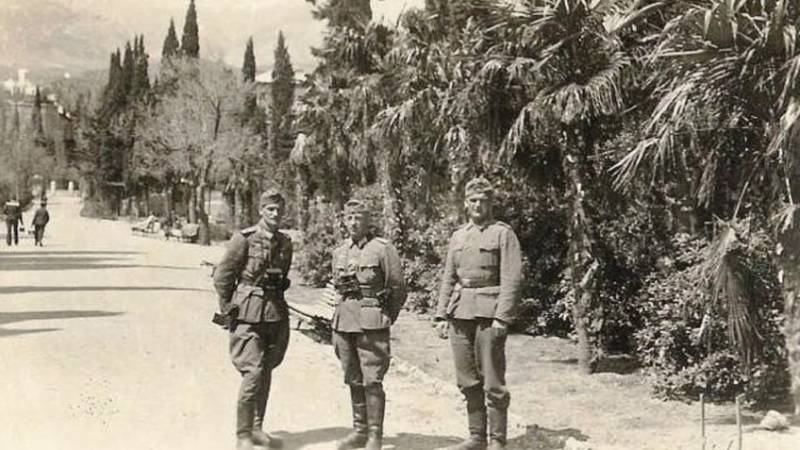
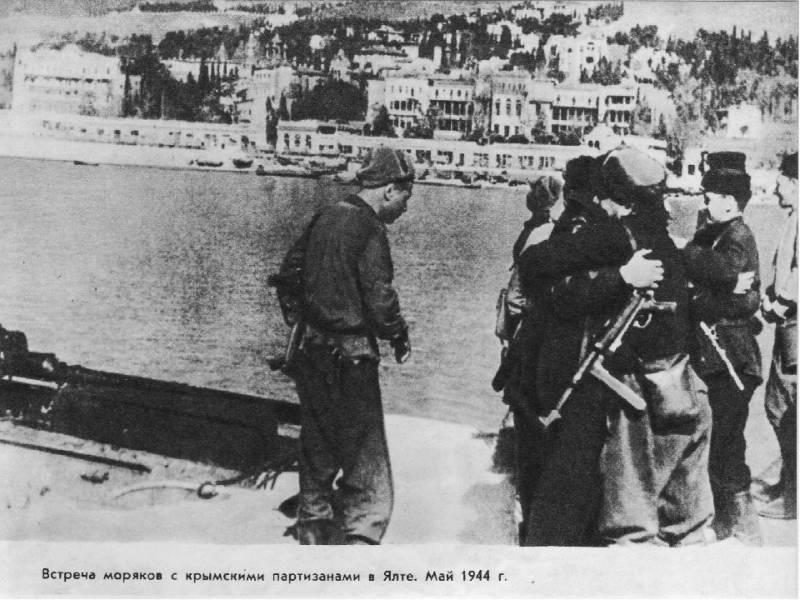
Information